Pregnancy is a beautiful and miraculous time in a woman’s life, filled with many changes and challenges. One of the most common concerns for expectant mothers is ensuring they are providing their developing baby with the best nutrition possible. When it comes to satisfying those pesky pregnancy cravings, salted peanuts can be a delicious and nutritious choice for moms-to-be. In this article, we will explore the benefits of incorporating salted peanuts into your diet during early pregnancy and why it can be a smart choice for both you and your growing baby. During pregnancy, maintaining a balanced and healthy diet is crucial for the health and development of your baby. Your body requires additional nutrients and calories to support the growth of your little one, making it essential to choose foods that are dense in essential vitamins, minerals, and protein. Salted peanuts are an excellent snack option that can help you meet your nutritional needs during this important time. One of the key benefits of salted peanuts during early pregnancy is their high nutrient content. Peanuts are a good source of protein, which is essential for the growth and development of your baby. Protein is crucial for building and repairing tissues, as well as helping to produce important enzymes and hormones. Including protein-rich foods like salted peanuts in your diet can help ensure that you are providing your baby with the necessary building blocks for healthy development. In addition to protein, salted peanuts are also a good source of healthy fats. Fats are necessary for the absorption of fat-soluble vitamins, like vitamin A, D, E, and K, which are essential for the healthy development of your baby. Consuming healthy fats during pregnancy can also help support your baby’s brain development and contribute to healthy skin and eyesight. By snacking on salted peanuts, you can help ensure you are getting an adequate intake of these important nutrients. Furthermore, salted peanuts are rich in various vitamins and minerals that are beneficial during pregnancy.
.
Peanuts contain significant amounts of folate, a B vitamin that is critical for preventing neural tube defects and ensuring proper brain development in the fetus. Folate is especially important during the early stages of pregnancy when the neural tube is forming. Including folate-rich foods like salted peanuts in your diet can help reduce the risk of birth defects and support the healthy development of your baby’s brain and spinal cord. In addition to folate, salted peanuts are also a good source of other important nutrients, such as iron, magnesium, and zinc. Iron is essential for preventing anemia, a common condition during pregnancy that can lead to fatigue and other complications. Magnesium plays a crucial role in muscle and nerve function, as well as maintaining healthy blood sugar levels. Zinc is important for immune function and cell growth, both of which are vital during pregnancy. By enjoying salted peanuts as a snack, you can help ensure you are getting a diverse range of essential nutrients that support both your health and the health of your baby. Another benefit of salted peanuts during early pregnancy is their convenience and versatility. As a busy mom-to-be, finding quick and easy snacks that are also nutritious can be a challenge. Salted peanuts are a portable and shelf-stable option that can be enjoyed on the go or as a satisfying snack at home. Whether you are craving something salty or crunchy, salted peanuts can satisfy your taste buds while providing a boost of energy and essential nutrients. It is important to note that while salted peanuts can be a healthy addition to your pregnancy diet, moderation is key.
..
Peanuts are a high-calorie food, so it is important to enjoy them in appropriate portions to avoid excessive weight gain during pregnancy. Too much salt can also contribute to water retention and high blood pressure, so be mindful of your salt intake when choosing salted peanuts as a snack. In conclusion, salted peanuts can be a delicious and nutritious snack option for expectant mothers during early pregnancy. Packed with protein, healthy fats, vitamins, and minerals, salted peanuts offer a range of benefits for both you and your growing baby. By including salted peanuts in your diet in moderation, you can help support the healthy development of your baby while satisfying your pregnancy cravings in a smart and nutritious way. So, the next time you find yourself reaching for a snack, consider reaching for a handful of salted peanuts to nourish yourself and your little one. In addition to the nutritional benefits of salted peanuts during early pregnancy, their crunchy texture and savory flavor can also help alleviate pregnancy cravings and morning sickness. Many expectant mothers experience cravings for salty or savory foods, and salted peanuts can be a satisfying option that provides both flavor and a satisfying crunch. The act of chewing on peanuts can also help alleviate nausea and settle the stomach, making them a convenient and effective remedy for morning sickness. Furthermore, incorporating salted peanuts into your pregnancy diet can help you maintain stable blood sugar levels throughout the day. The protein and healthy fats found in peanuts can help slow down the absorption of carbohydrates, preventing rapid spikes and drops in blood sugar. This can be particularly beneficial for pregnant women who may experience fluctuations in blood sugar due to hormonal changes. By snacking on salted peanuts between meals, you can help stabilize your energy levels and avoid sudden crashes that can leave you feeling fatigued and lightheaded. Pregnancy is a time when many women experience heightened emotions and stress levels.
…
The combination of physical changes, hormonal fluctuations, and the anticipation of motherhood can create a rollercoaster of emotions. Incorporating nutritious snacks like salted peanuts into your daily routine can help support your mental well-being during this challenging time. Peanuts contain tryptophan, an amino acid that is a precursor to serotonin, a neurotransmitter that helps regulate mood and promote feelings of relaxation and happiness. Including tryptophan-rich foods in your diet can help boost your mood and reduce feelings of anxiety or depression during pregnancy. Choosing salted peanuts as a snack during early pregnancy can also have long-term benefits for both you and your baby. Research has shown that maternal dietary habits during pregnancy can influence the development of a child’s food preferences later in life. By exposing your baby to a variety of flavors and nutrients through your diet, you can help shape their taste preferences and promote healthy eating habits from a young age. Eating a diverse range of foods, including nutrient-dense options like salted peanuts, can set the stage for a lifetime of healthy eating for your child. It is important to remember that every pregnancy is unique, and what works for one woman may not work for another. If you have any concerns about incorporating salted peanuts into your pregnancy diet, be sure to consult with your healthcare provider or a registered dietitian. They can provide personalized guidance based on your individual nutritional needs and any specific health conditions you may have. In conclusion, salted peanuts can be a tasty and nutritious snack option for expectant mothers during early pregnancy. Packed with protein, healthy fats, vitamins, and minerals, salted peanuts offer a range of benefits that can support both your health and the health of your growing baby. From satisfying pregnancy cravings to providing essential nutrients, salted peanuts can be a smart choice for moms-to-be looking to nourish themselves and their little ones. So, the next time you are looking for a wholesome snack to enjoy during pregnancy, consider reaching for a handful of salted peanuts to fuel your body and delight your taste buds.

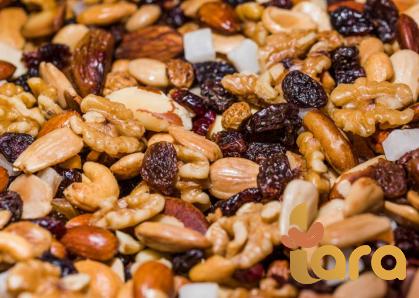
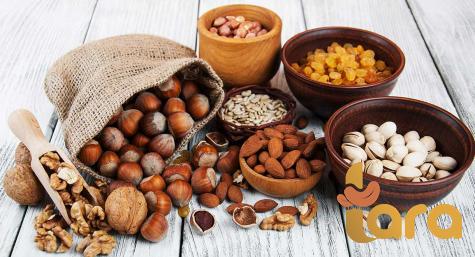
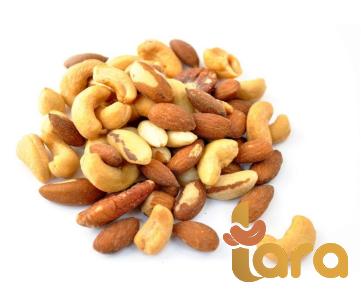
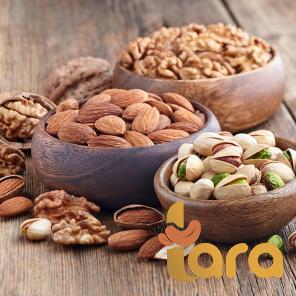
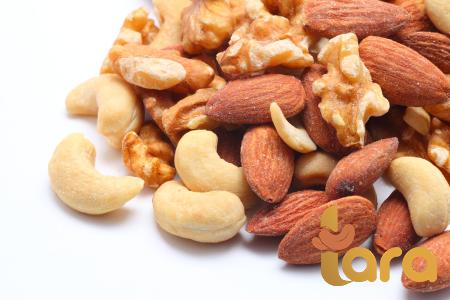
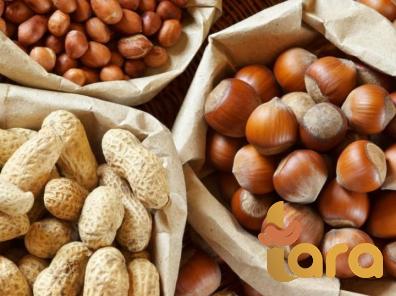
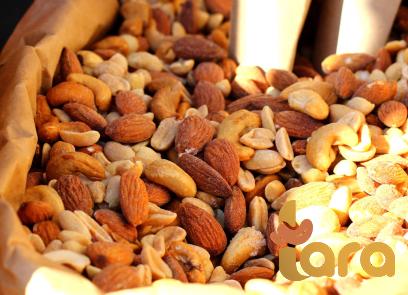
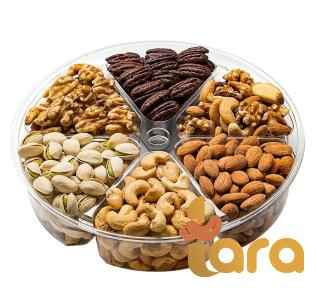
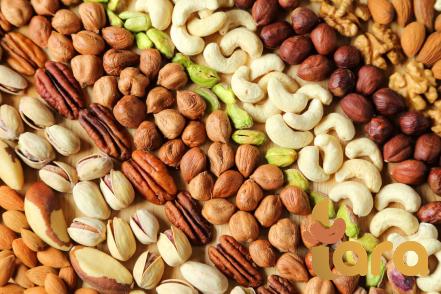
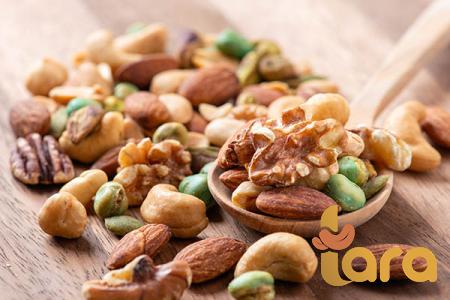
Your comment submitted.